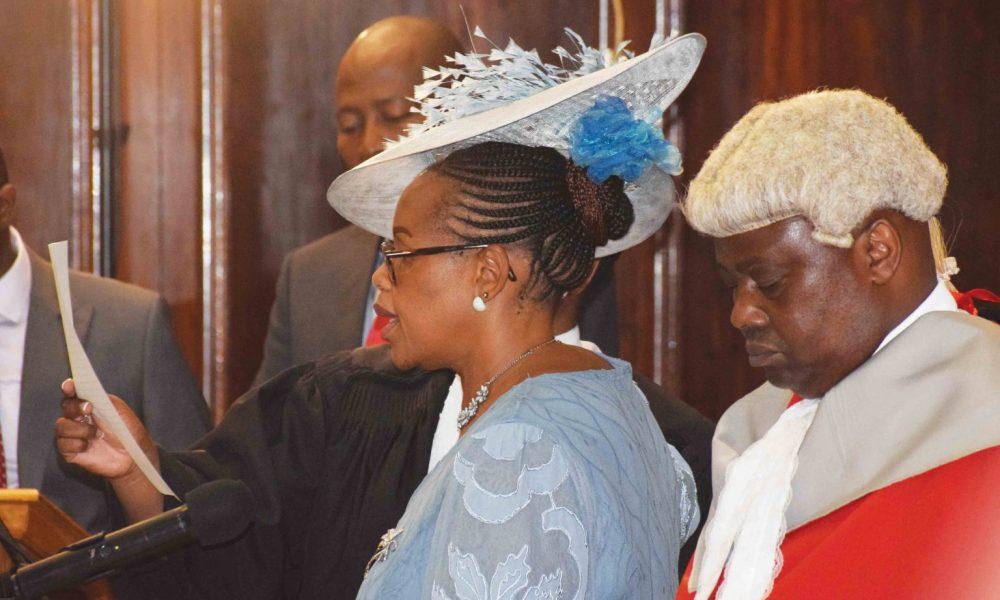Africa-Press – Lesotho. DEPUTY Prime Minister Nthomeng Majara has pleaded with opposition parties in parliament to give the government time to study the national reforms. Justice Majara was responding to a petition sent to prime minister Sam Matekane where the opposition was demanding that he halts the dismissal of Principal Secretaries pending the finalisation of the reforms.
“The cry is that the government should stop with the recruitment processes in the government while the reforms are being worked out,” Justice Majara said.
She said the opposition should exercise patience because almost all the people in the government have no background on all the issues surrounding the national reforms.
She said the government is doing within in its power to quicken the pace of the reforms. Justice Majara said the government’s intention is to ensure that interviews for new principal secretaries are done in a transparent manner.
“We need each other with the opposition, we also need their votes in the National Assembly,” she said. She said the government is committed to passing the reforms as the prime minister promised during his inauguration.
“One of the opposition leaders has asked when the reforms will be passed and I told them that because we were not part of the reforms we will make consultations first,” she said.
Justice Majara said the reforms had a lot of controversies therefore they needed to study them first. “I invited members of the NRA (National Reforms Authority) to consult and other departments too.
” She said they want to finish the reforms so that Lesotho is removed from the SADC agenda. She also said she invited political leaders in parliament and also the leaders who are outside parliament to get their opinions and comments.
Meanwhile, the leader of the Basotho Action Party (BAP) Professor Nqosa Mahao said they were expecting that the reforms would have been passed by now.
“We are in the fourth month and we see no progress,” Professor Mahao said.
He said they are concerned that the government has already hired statutory position holders like principal secretaries, the Director-General of the Directorate on Corruption and Economic Offences (DCEO), and the Auditor General.
“The government is supposed to stop hiring using the old ways that Basotho hate so much,” he said.
He said parts of the reforms need a two-thirds majority in parliament, “that’s why we need to work together”. He complained that ruling parties want to hire their own members.
“This should change and civil servants should be recruited through interviews.
He said when he was still justice minister, he suspended the hiring of judges who had been appointed on the basis of political affiliation which led to an uproar in the media until the Constitutional Court ruled that he was right.
“Now you know that the judges are no more hired politically, they apply and get interviewed in front of the television.
” The national reforms are the result of years of discussions among political parties, civil society and other role players mediated by SADC.
The reforms, dubbed the Omnibus Constitutional Bill, will amend key provisions regarding political parties, floor-crossing in parliament, the appointment of senior officials and the role of the prime minister.
The reforms also aim at addressing major issues that include the mixed proportional electoral system that has led to unstable coalitions and acrimony within political parties.
Basotho want to remove this arrangement because it has resulted in infighting within political parties and incessant floor-crossing in parliament that has led to unstable governments.
The reforms would also mean that a prime minister can only be removed by a two-thirds majority, a move that will stabilise the government as it will no longer be easy to topple it in parliament every time there are internal squabbles in a ruling party.
The new Bill’s provision on hiring of statutory position holders will limit political patronage in the civil service and root out nepotism because appointments will be done by independent commissions instead of the government.
For More News And Analysis About Lesotho Follow Africa-Press






